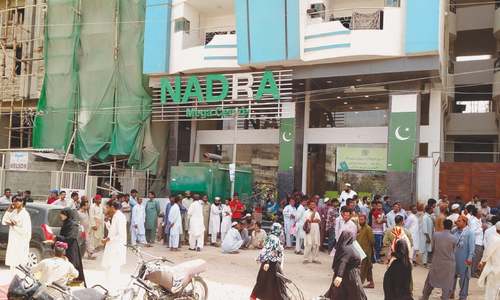ISLAMABAD: Many men think their daughters and wives should not have computerised national identity cards (CNIC) due to which there are 12.5 million more men on the electoral list than women.
Volunteers who have spent the last few months working in various regions across the country on Thursday shared their experiences at an event titled Enhancing Women CNIC and Voter Registration across Pakistan. The event was organised by the Trust for Democratic Education and Accountability and Free and Fair Elections (Fafen).
Sanam Bhutto, a volunteer from Shahdadkot, said she tried to convince women to get CNICs but many told her their husbands have forbidden them from getting the identity cards.
“Women were also not aware of the importance of cards. I still managed to convince 4,500 women to apply for cards,” she said.
Another volunteer, Maqbool Ahmed from Narowal, said him and his team had identified 38,000 women who did not have CNICs and that of these, 19,000 have now been issued cards.
“Some of them were over 70 years old,” he said.
Nigar Rauf, who came from Nowshera, said that she had thought maybe 100 women in the town will do not have CNICs.
“I was shocked to know that there are a huge number of women who did not have CNICs and they did not even want to have the cards. I told them they will not be considered citizens of Pakistan if they do not apply for identity cards. Another problem was that older women do not have marriage certificates and it is difficult to make computerised ones for them,” she said.
Nighat Sultana from Karachi said that in Saddar and Lyari Towns, many women do not have cards because the process is hard for them.
“The masses should be given awareness about the importance of identity cards,” she said.
Election Commission of Pakistan (ECP) Additional Director General Nighat Siddiqui said there is a huge gap between male and female voters as only those who have CNICs can vote.
She said that due to the efforts of the ECP and its partner organisation, 2.1 million more women are now registered with the National Database and Registration Authority and said these efforts will continue after elections as well.
Former Fafen Chief Executive Officer Mossarat Qadeem said that due to the efforts of volunteers, hundreds of thousands of women now have CNICs and are able to vote.
She said that during a campaign, volunteers identified almost a million women who did not have CNICs.
Published in Dawn, May 25th, 2018














































